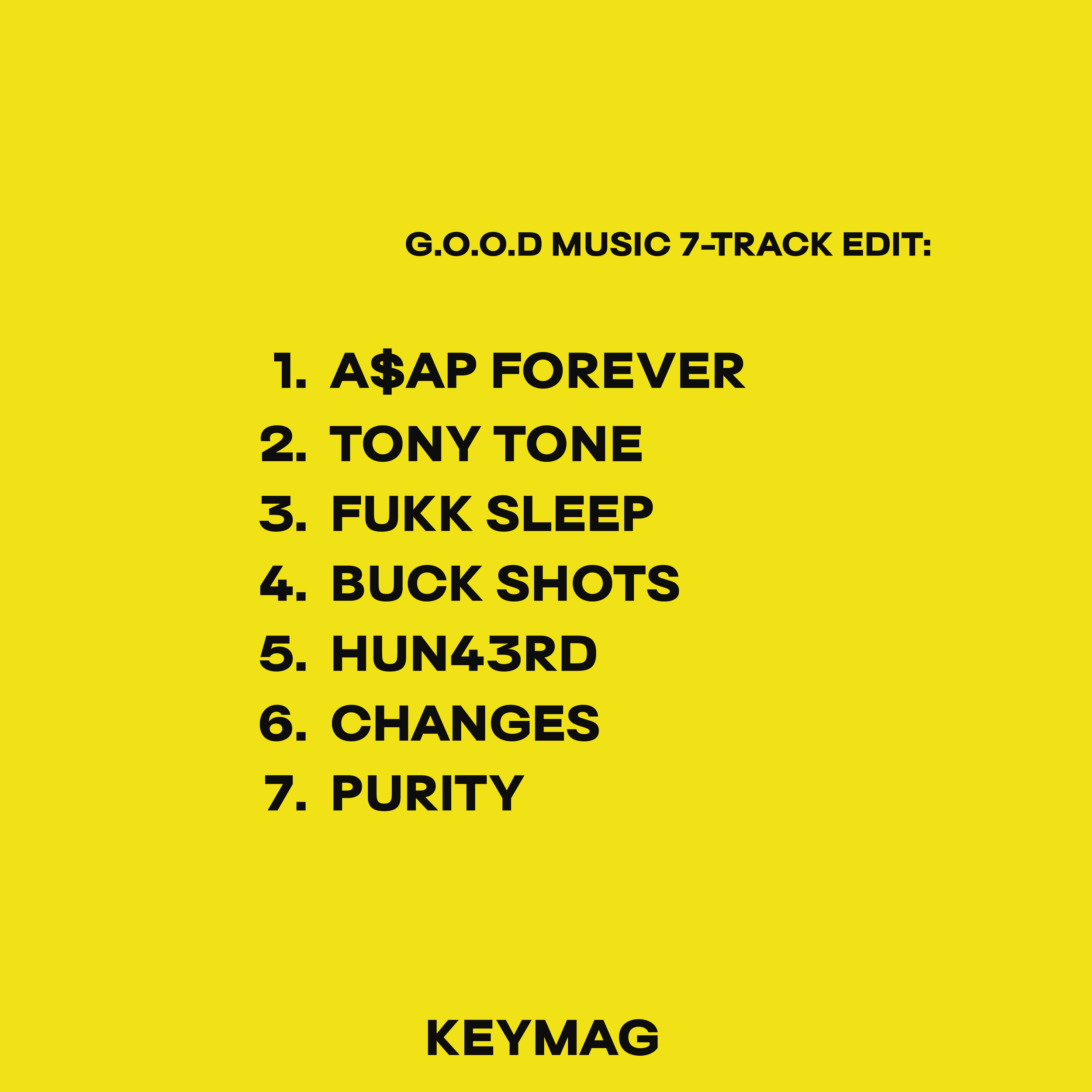A$AP Rocky - TESTING
From Harlem beginnings, Rocky has risen like his boxer namesake. From a cloud-rap mixtape that earnt praise well beyond his New York area and Houston, whose sound ironically he clung onto and re-energised, he’s been constantly stepping forward to the experimental lane of hip-hop rather than the dead-end cul-de-sac of throwaway brag-rap. However, TESTING represents something different completely, even breaking away from the punctuated titling and monochromatic artwork. But the most glaring absence going into this album is the executivity of A$AP Yams, who passed during the lead-up to At.Long.Last.A$AP. The influence of Yams could never be understated, as founder of the A$AP Mob, and this post-release bereavement is an unfortunate curse that Rocky has been put under. Yams sits alongside his dad who passed months after the release of LONG.LIVE.A$AP, and his sister just weeks after dropping Cozy Tapes, Volume 2. This makes TESTING the first album that has no involvement of Yams, save for a few referential tributes, and a heartbreaking line that sends the album off: “Lose someone every release, it feels like the curse is in me, press is gone and I grief”. Happily, the spirit of Yams still courses through this record, while simultaneously allowing Rocky to make huge leaps in developing his head-spinning sound.
The man named after Rakim turns up to these sessions with tight flows and a cool charisma as infectious as ever, allowing him to be assertive without even raising his voice, much like his namesake. This can be seen vividly on “A$AP Forever”, an explosive leap upward for Rocky. Though the single version is fantastic on its own, the remixed album version is what throttles the song into high gear, with a prophetic intro from T.I., and a quick-footed yet songful verse from Kid Cudi. But the standout performance goes to Rocky himself, spinning out a cyclonic flow that fans the flames of the track with clever internal rhymes. Each sound at home on the inebriating production, wide-screening a classic trip-hop track from Moby, the reversed strings washing the elements of the song out with a hazy glow. This sample was exclusively remade for “A$AP Forever”, and it takes over the second half of the track, slowing down to unveil the original’s downtrodden drums and angelic twinkles of piano. Simply put: it’s Rocky’s best song to date.
TESTING is, with each vibration, the rapper’s most buckwild record in terms of experimentation, succeeding albums that already sat hip-hop on the operating table. Movements like “Fukk Sleep” sharpen its inventive characteristics, soothing the oncoming energy of the previous tracks with a meditative track that tiptoes through with a warbling bass and rattling percussion. Rocky brings an equally toned-down performance, donning the ideal counterpart to FKA Twigs’ heavenly vocals. Sandwiched betwixt the crunk-heavy first half of the album, this late-night track matches the sentiment of the title, nevertheless retaining the swirling collage of sounds heard around every other block in the project.
Outside of the mad-scientist inventions, Rocky takes a pilgrimage to his older, Houston-focused sound that put him on the map per the hallucinogenic trumpets of “Tony Tone” and the trunk-abrading “Buck Shots”. However, the project does have the capacity to misfire. Kodak Black commits the crime of murder - via his vacuous wailing that is figuratively and literally phoned-in - on the track “CALLDROPS” direct from prison, a unique achievement in itself as he butchers a perfectly acceptable slow cut. “OG Beeper” also sits in an odd space in the tracklist, feeling like 30 minutes in a cold bath by way of a basic beat that would not be out-of-place next to those amateur type-beats one could find on YouTube.
The art that covers the record perfectly visualises the majority of its music, a swarm of Rocky look-alikes circling the listener, the gang mentality brought before us. But edge closer to the finishing point of TESTING, and one can start to feel that deep down, he is lonely. “Purity” bookends the album quietly. Tenderly-sweeped guitar fills the mix with warmth amongst the crowd of twisted vocals provided by two elusive figures Rocky hires for the job. A barretoned Lauryn Hill sample harmonies with Rocky, meanwhile Frank Ocean unloads untampered sagacity, him and Rocky volleying bits of wisdom, bleeding over the bars with understated truths. “Purity”’s structure is delectably linear, moving in non-sequiturs like Ocean’s “Provider”, the skittering drums mimicking those of the off-album single from the year before. It perfectly paints how Rocky feels on the track, his fame is burdened by preoccupations that have distanced himself from his family, his mind burdened by demons he doesn’t have time to deal with. It makes the inclusion of that Lauryn Hill all the more vital: “I gotta find peace of mind”.
Despite his lyrical shortcomings relative to top-tier rappers like J. Cole or Kendrick Lamar, Rocky still maintains his spot up there with the best, through his willingness to tap into bold territory not yet explored by the snooty aristocracy that the mainstream hip-hop scene can be. Maybe some more tests needs to be done before Rocky can put out the truly exceptional project that he’s capable of doing, but he certainly manifests a unique ability to translate his whirlwind lifestyle into something fans can engorge themselves in for 52 dimension-shifting minutes.


